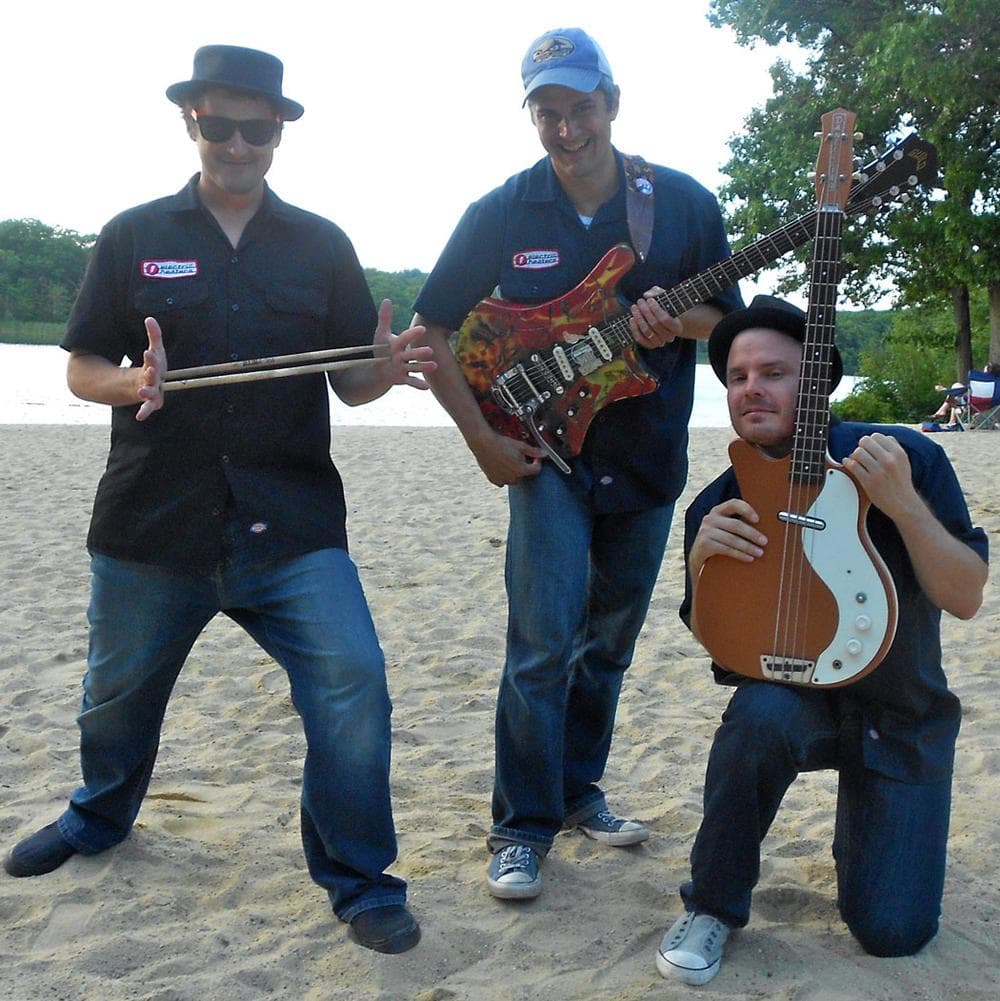Advertisement
Surf Rock: It’s What’s For Summer

Ever heard the song “Wipeout,” by the Surfaris? You know the one: it starts with that weird, high-pitched cackle and then the drums begin a raucous, up-tempo shuffle, like waves crashing on the beach. It is the quintessential surf song, wordless—apart from the intro—and striking in its simplicity. Its echoey twang is instantly transportive. “Wipeout” is sunshine and surfboards and California in the ‘60s, whether you were there at the time or not.
Surf music, pioneered by Dick Dale, the so-called "King of the Surf Guitar," enjoyed only a brief moment of glory, from 1961 to 1965, before the Beatles and their fellow British invaders wiped it out (so to speak). Like bellbottoms and aviator sunglasses, it has experienced resurgences in popularity, first in the ‘80s and again after the release of the film “Pulp Fiction” in 1994. At the end of the opening scene (right after the frame freezes on two stickup artists holding up a diner), the opening credits roll to Dick Dale’s singular rendition of the Middle Eastern folk tune “Misirlou,” a muscular, serpentine melody that, in Dale’s expert hands, proved just as powerful 32 years after he first recorded it.
Today’s surf music scene is a subculture obsessed with vintage gear and popular kitsch. It is primarily instrumental music, and its aficionados swarm online forums in search of old Fender Stratocasters and to debate the legitimacy of the Beach Boys’ claim to serfdom. They display a proclivity for puns and for incorporating goofy visual gimmicks into their acts. Bands like Man or Astro-Man?, who don space suits for their live shows, and Meshugga Beach Party, who dress in faux Orthodox attire and play surf covers of Jewish folk songs, balance a genuine love for surf rock with a winking, ironic cheekiness.
“With the internet it’s so much easier for people who are into the stuff to connect with other people who are into it,” says Matt Heaton, the frontman for Boston’s own surf noir outfit Matt Heaton & the Electric Heaters. The Heaters, along with a handful of other surf-inspired groups including Surf’s Up Spicoli, Tsunami of Sound, and the Weisstronauts make up a vibrant local scene here in Boston. You can see real-live surf music this month when the Electric Heaters play at Club Passim in Cambridge at 4:30 p.m. on both June 23 and 30.
Until then, enjoy this trip down the YouTube pipeline:
DICK DALE – “MISIRLOU”
Dick Dale’s distinctive guitar style may be the most defining element of surf music. He favored thick strings, heavy reverb, and a rapid, staccato picking technique; for this, he is sometimes known as the Father of Heavy Metal. Because Dale was prone to blowing amps, Fender developed a specialized amplifier called the Showman that produced an incredibly loud, clean sound. Dale is still touring at age 76, and will appear at the Middle East Downstairs in Cambridge on July 25.
THE CHANTAYS – “PIPELINE”
The Chantays were founded by classmates at Santa Ana High School in California in 1961, and their internationally-charting hit, “Pipeline,” came only a year later. It featured electric piano and, apparently, choreographed dance moves.
MAN OR ASTRO-MAN? – “THE MIRACLE OF GENUINE PYREX”
Since 1993, Man or Astro-Man? have brought surf shtick to a whole new level. They play with oddly whimsical aggression, incorporating sounds from punk, new wave, and sci-fi B movies into their music. After a decade-long hiatus, they reunited in 2010, and in April 2013 released their ninth studio album, “Defcon 5... 4... 3... 2... 1.”
SURF’S UP SPICOLI – “CHARLES JEFFERSON”
MATT HEATON & THE ELECTRIC HEATERS – “INCIDENT AT THE PLEXICOM”
Boston is home to a passel of inventive surf bands, including Surf’s Up Spicoli and Matt Heaton & the Electric Heaters. Here they are playing at the very same venue, Church of Boston. Surf’s Up Spicoli will appear at Brighton Music Hall on June 18 as part of Allston Summerfest.
Correction: An earlier version of this story incorrectly stated when Dick Dale’s tune “Misirlou" appeared in "Pulp Fiction."
Amelia Mason is a writer and musician living in Cambridge. Those pesky “day jobs” she has to “make money” really aren’t worth mentioning.
This article was originally published on June 19, 2013.



